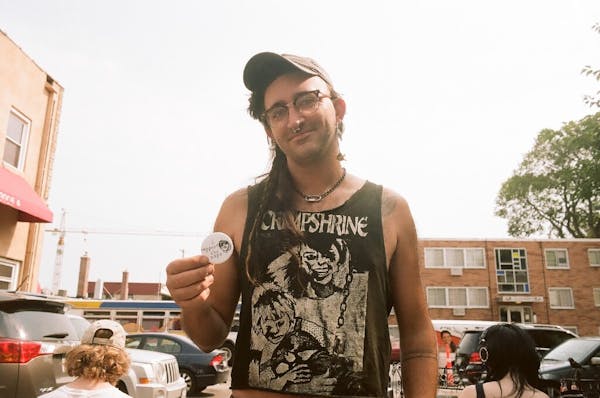Can you believe that United Airlines flight attendant slapped a baby and then set off the smoke detector when she burned a crucifix? Bad PR week for the company.
OK, that hasn't happened. Yet. By the time this hits print, who knows what will have happened? It's possible Pepsi will make an ad that shows a passenger about to be dragged off a plane, but he gives the cop a soda and everything's jake. Social media — a term that means "millions of people yelling at the bathroom mirror" — will erupt with fury, and everyone involved will apologize.
Which means ... nothing.
No one believes in the sincerity of a corporate apology anymore — if they ever did. Let me give you a local example.
The coin-counting machine was broken at the grocery store. It's been that way for weeks. The store put up a sign that said it wasn't working, and then added: "We apologize for the inconvenience. Have a great day!"
It's that last happy fillip of encouragement that strikes people as strenuously insincere. Can you even imagine a conversation that goes:
"Say there, Bob, you're in a chipper mood. What's up? Has the imminence of spring put a lilt in your step?"
"Nah, I went to dump a coffee can full of coins into a machine that translates them into pieces of paper we all assume have intrinsic value, but it was broken. For a moment I was mad, but then the sign said they apologized for it, and I thought, 'Well, they do care. There is a human heart behind the cold, calculating brain of the financial industry. I'll bet the branch manager was stripped to the waist in the lobby, flogging himself with wet leather straps, crying for forgiveness.'
"But then — get this — the sign wished me a great day! Not a good day, not a day devoid of the petty irritations that seem like paper cuts on the lip of your soul, but a great day. I've been smiling ever since."
Corporate apologies all have the same meaning: "OK, OK, we said the magic word. Call off the dogs, and let's all move on."
It's different with your loved ones. You admit your failings and say you are sorry, which is different from apologizing. The latter is something you do. Being sorry is something you are.
Note: If you say, "I'm so sorry," it's completely fake and everyone knows it. If you say, "I'm so, so sorry," it's credible. But if you go for a sorry with three "so's," you're back into implausibility.
Anyway. The most honest thing a company can say is: "We regret the incident." Because you can bet they do, in the same way you regret slicing the tip of your finger off while halving a bagel.
The handy thing about expressing generic regret is that the offenders don't have to explain exactly what they're regretting. If they had to admit the truth, they end up saying, "We really wish this hadn't happened because we had to fire the guy who always brought cupcakes on Monday and then everyone had to go a boring seminar on customer service."
The best thing a company can say in lieu of an apology? "Well, that was stupid. Everyone now gets some money.
"Did you see the guy hauled off the plane on your Facebook page? Click here and we will send you 50 cents. No one thinks our CEO is disemboweling himself with a ceremonial sword out of shame; you know he's yelling 'Make this go away!' to the social media team. You can have some of our money if you agree to get over it already."
This they won't do, so get ready for apology inflation. United will say, "We are so, so, so, so sorry," which is a four-so sorry. When no one believes them, they'll roll out the five-so apology.
By 2150, when they're dragging passengers off the Mars shuttle, they'll be up to six-so-to-the-power-of-10 apology, and people still won't think they really mean it.
Unless they add "sincerely."
james.lileks@startribune.com • 612-673-7858 • Twitter: @Lileks • facebook.com/james.lileks






